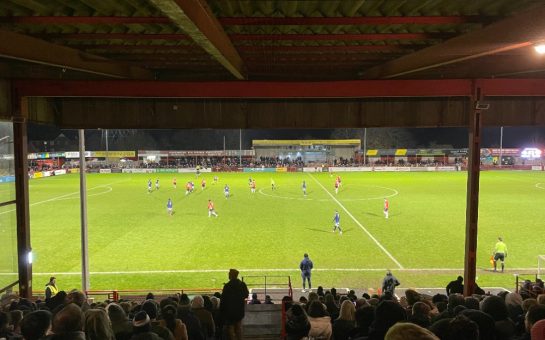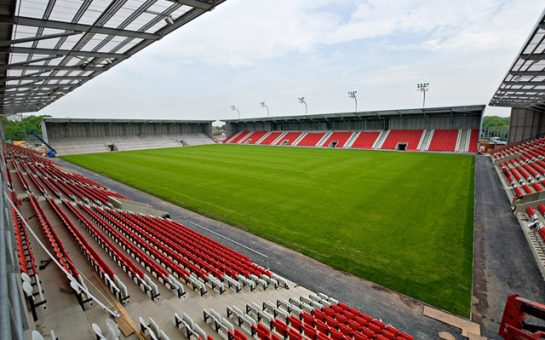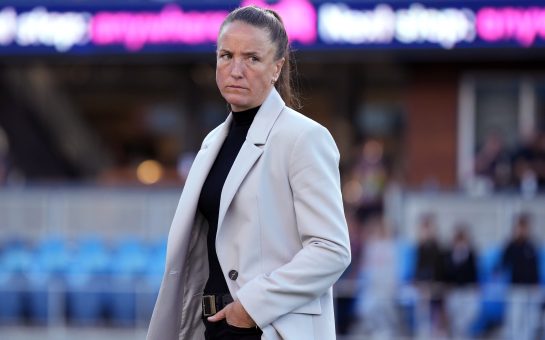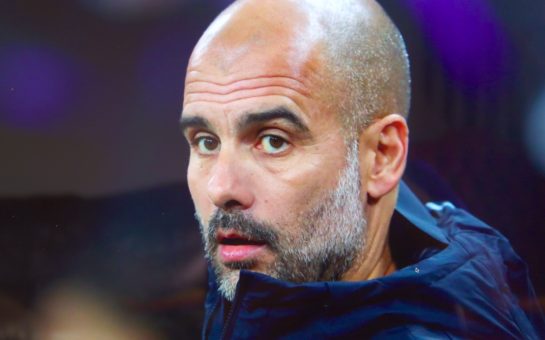Manchester is never more divided than in the lead up to a derby game – families, friends, colleagues all separated by their football allegiance.
With the latest clash between the city’s two football titans taking place at the Etihad Stadium today, the global focus is certainly on this ‘football mad’ metropolis.
But the modern day fracture actually finds its roots in unity according to the latest academic research from Manchester Metropolitan University.
Gary James, a member of the Department of Exercise and Sport Science, claims that interest in football was originally sparked by Manchester City’s FA Cup triumph in 1904.
Speaking exclusively to MM at the National Football Museum, James discussed the significance of one key incident and how this brought the ‘whole population’ of Manchester together.
“Timing was the most important aspect for the development of football in every major city in England and this was Manchester’s time,” said the renowned author.
“Winning the FA Cup focussed the attention of the city because football was certainly played and known about beforehand.
“But you need those defining moments to really spark something in to life and this was that moment for Manchester.”
The local authorities did not appreciate the role the sport could have on life in the city, despite the Blues also finishing as runners-up in the league in 1903-04.
Homecoming arrangements for the cup win were left to the club and its fans, with contemporary reports stating that the ‘whole population’ of Manchester turned out for an impromptu Monday night celebration.
The match was filmed and subsequently screened throughout the city, something that James feels was significant in promoting this all-encompassing football mentality.
“The homecoming parade and the filming of the match were hugely important because even people who didn’t go to the game were involved,” said the Manchester City blogger.
“Football established itself as part of the Mancunian way of life in a way that it had never done so before.
“The opening of the Manchester Ship Canal was a major event for the city, but nothing had really bound Mancunians together until this early cup success.”
Although the local authorities were unprepared for the sudden surge in popularity, both Manchester clubs were rapidly developing their infrastructures.
This new found identity saw United attendances more than double in the years that followed, prompting the Red Devils to build Old Trafford in 1910.
City were the best supported club in the Football League for two seasons between 1903 and 1915, regularly recording attendances among the top three in England during that period.
James’s research also found that those attending matches were not exclusively working class men, as people often tend to think today.
“I think it may surprise a few to know that Manchester City’s support contained a good mix of classes,” added the renowned author.
“When I set out [to begin the research] I didn’t anticipate identifying how affordable the game was to Mancunians.
“Ticket prices had a much broader range and there were also female season ticket holders in 1904.”
The BBC’s latest ‘Price of Football’ Study found that Premier League champions City offer the cheapest season ticket in England’s top flight.
But back in 1904 the price of a week’s rent for a terraced house in Gorton cost the same as a reserved seat ticket to see the Blues in action.
The author of Manchester – A Football History said that while the cost of purchasing the most expensive tickets may have fallen, the cheapest ticket prices have risen dramatically.
Equally his research found that demand was sufficient for female season tickets to be continually offered between 1904 and 1908.
While this may come as a shock to many, it is perhaps even more surprising to think that City fans encouraged their star players to join United when the FA forced them to resign.
Billy Meredith, a hero in both sides of Manchester, was embroiled in a bribery scandal in 1905 and according to James the rivalry between the clubs was not overly significant.
“Mancunians definitely wanted the players to stay in the city,” he added.
“City paved the way for United, but over time both clubs were able to build on this and lay the foundations for Manchester’s position in the football world today.”
Such was the controversy surrounding Carlos Tevez’s 2009 move between the now great rivals, it is unlikely that Sunday will be anything less than a monumental encounter.
FA Cup success, football infrastructure and the establishment of Manchester’s footballing identity’ is journal Soccer and Society’s most downloaded article and is free for a short time here.
Main image courtesy of Copa90 via YouTube, with thanks.



